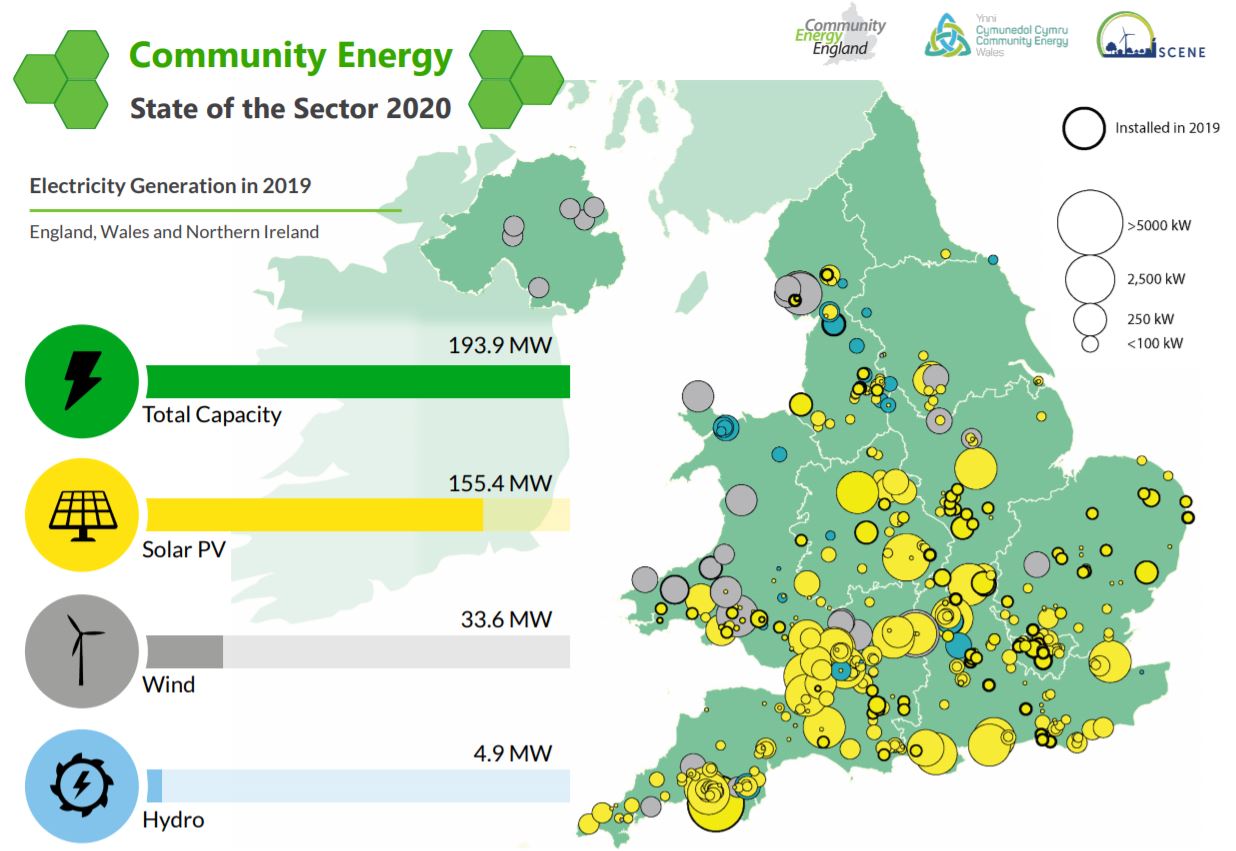During this year’s Community Energy Fortnight, we hosted a Net Zero Community Energy webinar with Northern Powergrid to explore how they can work with community and local energy stakeholders to achieve net zero. The theme of the session was very much around collaboration; how community energy organisations can help the people who run our electricity networks to ensure that our energy transition is just and socially equitable, and how network operators can help equip community organisations with the skills and support they need to make a meaningful contribution to net zero.
The benefits of community energy and its social focus has been further highlighted by the coronavirus pandemic, with many community energy groups setting up coronavirus crisis funds, using income from their renewable energy projects to support vulnerable people in their communities. Community and locally owned infrastructure can make communities more resilient to crises. It is vital that our ‘green recovery’ from the pandemic not only enables net zero but is also socially equitable so that the poorest in our communities are not left behind.
As a key infrastructure provider, network operators such as Northern Powergrid are in a unique position, not only to enable decarbonisation, but also social inclusivity. It’s a role that Northern Powergrid take very seriously, which is why they work with community partners to sign people up to the Priority Service Register, and were the first network operator to set up a fund for community energy back in 2015. There are 26 actions to help ensure communities are not left behind in the energy transition set out in the Northern Powergrid Community Energy Engagement Strategy published earlier this year.
During the webinar, there were plenty of conversations about why the north and east of England has fewer community energy groups and community-owned generation projects, compared to the rest of the country.

Figure 1: Community energy electricity generation projects in 2019. Source: Community Energy England, State of the Sector report 2020
Webinar participants pointed to the higher levels of deprivation leading to less community capacity and resource, less policy support, and the diverse geography of the region. Whatever the reason, it is something that all community and local energy stakeholders in the region are keen to address, and support is available. The North East Local Enterprise Partnership (LEP) has identified community energy as one of key themes for the region and are encouraging community energy groups to form and come forward with projects, which could be supported through the Rural Community Energy Fund and connected with other successful groups, by getting in touch with their Local Energy Hub.
Local authorities who joined the workshop shared a similar view, especially those that have declared a climate emergency, and together with Northern Powergrid, can help community energy to grow in the region. During the webinar we heard from Andy Heald of Energise Barnsley, who are a great example of a community energy organisation who’ve benefited from a strong relationship with their local council; they have installed free solar panels on more council homes than any other community energy group in the UK, with a positive social impact in their community.
As we emerge from the coronavirus pandemic, community energy organisations, local authorities and network operators can help ensure both a green and socially just recovery, by working together to decarbonise and democratise our energy system. Support is available, so get in touch with your local authority, network operator, or organisations like Regen, to find out more.
You can get in touch with Northern Powergrid at communityenergy@northernpowergrid.com, where you can ask questions, tell them about your projects, sign up to their new quarterly newsletter and express your interest in joining their Community Energy Stakeholder Panel. The community energy page on their website has useful resources and more information for communities.
If you missed the Net Zero Community Energy webinar, you can watch the recording here.
